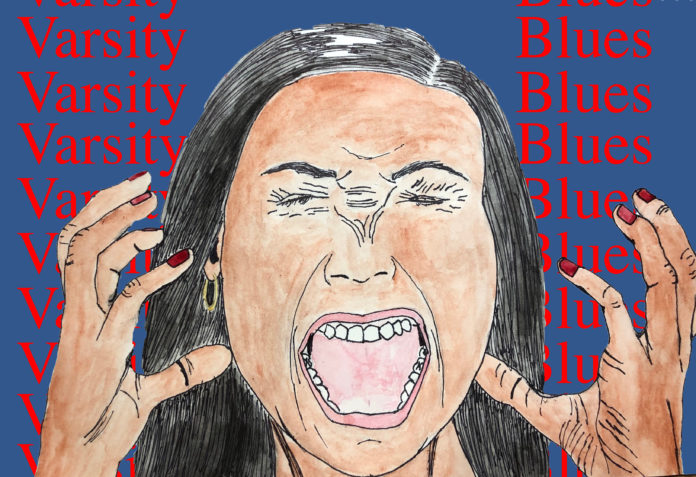A few weeks ago, I was reading a high schooler’s essay about her experience learning English and her relationship to American culture through cinema. In her essay, she tackled the struggle of not fitting in as a first generation student, her initial sense of isolation and the power of art and language in connecting her with American society. In my position as a mentor with Upward Bound and my work-study job with the Neighborhood Partnership Program on campus, I tutor low-income and first-generation high schoolers that are going through the college application process.
I was reading over her essay when I heard about the recent scandal of elitism and wealth in the college admissions process. A federal investigation called Operation Varsity Blues is addressing allegations of bribery and cheating from America’s wealthiest families and celebrities to get into their preferred colleges. Immediately, I felt disgusted and exasperated. Higher education has the resources and money to challenge the status quo by equalizing the playing field for the disadvantaged, yet they withhold it.
I spent summers working to help pay for my college education and, like most young people in the country, will graduate in debt. I already knew the higher education admissions process had its flaws, including its preference for legacy students and donations. However, when families pay millions of dollars to secure spots for their children at top-tier schools, it comes at the expense of other students who don’t get the same educational opportunities.
The scandal draws attention to a system where college institutions claim to care about diversity and equitable access, but actually reproduce and perpetuate the cycle of socioeconomic disparity. It proves higher education has completely strayed from its original purpose of educating students — it treats college not only as a business, but a corrupt business. It is indicative of how the college process continues to undermine minority populations.
A person’s socioeconomic status does not determine their merit or character. When approximately one-third of Harvard’s students from year to year are legacy, and the acceptance rate for legacies at Stanford is three times higher, it’s fair for us to start questioning the validity of these supposed “merit-based” systems. Colleges should strongly take into consideration the economic and social barriers some students need to overcome in high school. Further, college campuses overall reinforce racial and socioeconomic disparities. We are paying thousands of dollars a year to ensure a quality education, but the jury is still out regarding colleges’ concern for equity.
What is surprising, however, is the fact that scandals like these take place and people still question the validity of affirmative action. This is absurd because rich students, not minorities, are taking seats from deserving students. The college scandal forces us to rethink why we put elite colleges on pedestals. These colleges should not be able to dictate who deserves access to opportunity. Now that we know money is a primary motivator for who gets admitted and who doesn’t, we know that more deserving students may have been worthy of acceptances they didn’t receive.
Yes, there are students that worked hard and deserved their acceptances into elite institutions. However, wealthier students, on average, earn higher test scores, benefiting from the privileges that give them a leg up in the college admissions process. It is clear that the importance of wealth in the process contributes to the lack of diversity on college campuses. If we don’t hold elite institutions accountable, education won’t be an option to empower low-income, first-generation and minority students.
If we truly want to make an impact on higher education and the institutions that perpetuate elitism and disparity, we will stop giving elite institutions power. Instead of allowing selective institutions to deny admission to students who are in greatest need, we will critique the fact that time and time again, they don’t accept qualified students over those whose families can write checks. Employers, too, need to focus less on the name of the college and more on what students did with their experience. We need to stop worrying about the selectivity of certain colleges and recognize the schools that make room for underrepresented students.
Now that we know the truth behind the college admission process, colleges can’t continue to serve those who bribe their way in — they should serve those who have the most grit. Low income, first-generation students may not have the highest test scores, be able to afford club sports or have access to paid college advisors, but many are still intelligent and deserving of acceptances to top-tier schools. Considering the increasing price of tuition, colleges should aim to remedy national socioeconomic inequalities, not exacerbate them.
Maddie Solomon is an undeclared first year. She can be reached at solomonm@oxy.edu.
![]()































